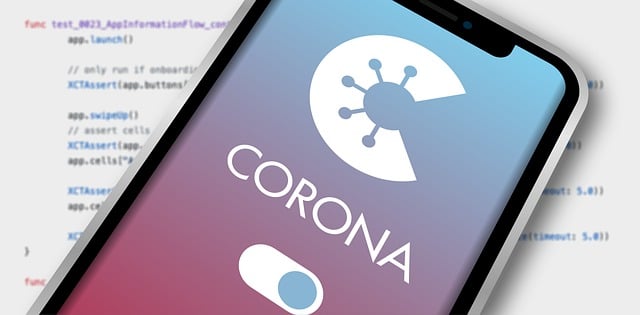In today’s fast-paced world, personal development is not just an option but a necessity. It’s about becoming the best version of yourself through continuous learning, acquiring new skills, and maintaining mental and physical well-being. Technology has made this journey more accessible through numerous apps that cater to various aspects of personal growth. Utilizing these tools effectively can help streamline your self-improvement efforts. In this article, we will explore how you can use apps for personal development across various dimensions such as learning, productivity, mental well-being, fitness, and habit tracking.
1. Learning and Skill Acquisition
Apps for learning and skill acquisition are plentiful. From language learning to coding and arts, there are specialized apps that make it easier to pick up new skills on the go.
Language Learning
Apps like Duolingo, Babbel, and Rosetta Stone offer structured language courses that cater to different levels of proficiency. Duolingo, for instance, makes language learning feel like a game, with levels, rewards, and challenges that keep you motivated.
Online Courses
Platforms like Coursera, Udemy, and Khan Academy offer a plethora of courses spanning various fields – from business and technology to arts and humanities. These apps provide not only video materials but often quizzes, peer reviews, and certifications that you can add to your LinkedIn profile.
Coding and Digital Skills
Apps such as Codecademy, SoloLearn, and Mimo are excellent for learning coding languages and other digital skills. They offer interactive lessons that make complex subjects easily comprehensible and practical to implement.
2. Productivity and Time Management
Time is our most valuable resource, and managing it effectively is crucial for personal development. Productivity apps can help you in planning, organizing, and optimizing your time and tasks.
Task Management
Todoist, Google Keep, and Microsoft To-Do are popular apps for managing your tasks and to-do lists. They allow you to break down your tasks into manageable chunks, set reminders, and prioritize your responsibilities.
Time Tracking
Apps like Toggl, Clockify, and RescueTime help you monitor how you spend your time, identifying areas where you might be wasting precious minutes. This data can then be used to make adjustments and improve your productivity.
Note-Taking
Evernote, Notion, and OneNote serve as your digital notebooks, helping you capture ideas, notes from meetings, or any valuable information that you come across. These apps often sync across devices, ensuring that your notes are always accessible.
3. Mental Well-Being
Mental health is a critical component of personal development. Apps designed for mental well-being can offer daily practices that enhance mindfulness, reduce stress, and foster emotional health.
Meditation and Mindfulness
Headspace, Calm, and Insight Timer provide guided meditations that cater to different goals – whether it’s stress reduction, better sleep, or increased focus. These apps often come with mood tracking features and breathing exercises that can be used during high-stress moments.
Journaling
Apps like Day One and Penzu encourage regular journaling, which is a proven way to process emotions, set goals, and reflect on life events. Journaling can improve self-awareness and mental clarity, which are integral for personal growth.
Therapy and Counseling
Services such as BetterHelp and Talkspace connect you with licensed therapists through chat, video, and voice calls. These platforms make professional mental health support more accessible and convenient.
4. Physical Fitness and Health
Maintaining physical health is as important as mental well-being in your personal development journey. Numerous apps help you stay fit, eat healthier, and keep track of your physical activities.
Fitness Tracking
Apps like MyFitnessPal, Strava, and Fitbit pair with various fitness devices to help you monitor your physical activities, track your workouts, and measure your progress.
Home Workouts
Apps such as Nike Training Club, 7 Minute Workout, and Freeletics offer a range of workouts that you can do at home. These apps provide instructional videos and customizable workout plans that suit different fitness levels.
Nutrition
Yazio and Lose It! help you keep track of your meals and caloric intake. They offer extensive databases of food items and their nutritional values, which make meal planning more straightforward and your diet healthier.
5. Habit Tracking and Goal Setting
Cultivating good habits and setting achievable goals are fundamental for personal development. Habit tracking apps help you stay on course by providing reminders, tracking your progress, and celebrating your milestones.
Habit Tracking
Habits, Streaks, and Habitica are popular habit-tracking apps that make forming new habits more manageable and more engaging. Habitica, for instance, gamifies the process, turning your habit streaks into a role-playing game.
Goal Setting
Goals On Track and OKRs by Weekdone are excellent for setting, tracking, and achieving your goals. They use frameworks like SMART goals or Objectives and Key Results (OKRs) to ensure that your goals are specific, measurable, achievable, relevant, and time-bound.
Conclusion
Using apps for personal development is an incredibly effective way to streamline your self-improvement efforts. Whether you’re looking to learn a new skill, increase your productivity, improve your mental well-being, stay fit, or cultivate new habits, there are specific tools designed to help you succeed. The key is to choose the apps that align with your personal goals, integrate them into your routine, and use them consistently. With the right app strategy, you can embark on a well-rounded and fulfilling personal development journey.


